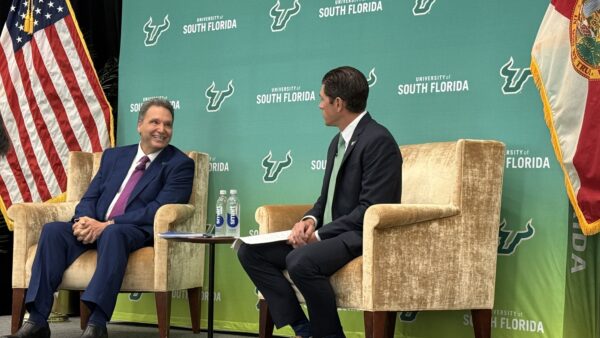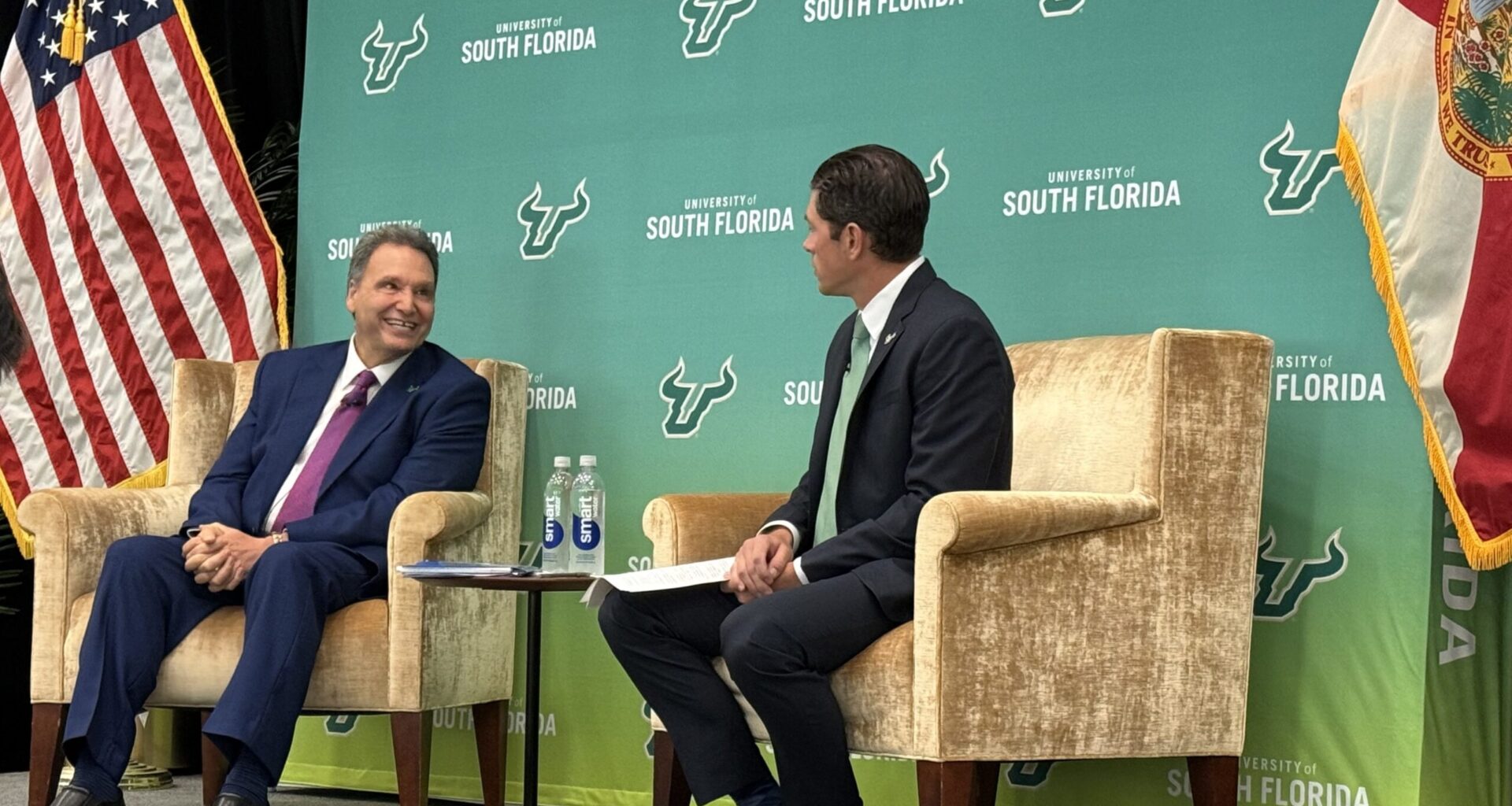 Having more presidential finalists would have increased USF’s transparency in its decision. ORACLE PHOTO/CLARA ROKITA GARCIA
Having more presidential finalists would have increased USF’s transparency in its decision. ORACLE PHOTO/CLARA ROKITA GARCIA
Moez Limayem visited all USF campuses on Monday for public forums, where he said he was delighted when the university called to inform him he would be the sole presidential finalist.
Limayem has an extensive background in higher education, serving as the current president of the University of North Florida and as the Lynn Pippenger Dean of the Muma College of Business from 2012 to 2022.
This is refreshing to see amongst the trend of universities appointing politicians as presidents.
Despite the desired educational background, not knowing how many candidates applied for the presidential position can undermine transparency.
Having only one finalist for such a significant leadership role can send the wrong message to the USF community. It could show that the decision was made behind closed doors rather than through an open, fair process.
Related: From USF dean to presidential finalist: A look at Moez Limayem’s career, controversies
Florida Statutes 1004.098, passed in 2022, exempts university presidential searches from public record requests — meaning information on who and how many people applied is not available to the public.
Not knowing how many people applied or who they are can undermine trust in the selection process. When the public and campus community are left in the dark, it raises questions about fairness and inclusivity and whether the best-qualified person was actually chosen.
With only one person in the running, students and faculty can only approve or reject, rather than have more choices and be involved in the decision-making process.
Having more than one finalist would have given the community a chance to evaluate different visions, priorities and leadership styles.
This year, University of Florida’s presidential finalist, Santa J. Ono was approved as the president-elect by the UF Board of Trustees but ultimately rejected by the Board of Governors.
Related: OPINION: USF should not hire a politician as university president
This was the first time the BOG had overturned a trustee-approved presidential candidate from a Florida university, according to the Independent Florida Alligator.
The presidential process at UF, from the initial selection to Ono’s rejection, took almost seven months.
And due to Ono’s rejection, UF had to restart the selection process.
In the meantime, UF appointed Donald Landry as interim president in August — who took office in September.
Because choosing a president requires extensive research and careful consideration, starting the process over can be a significant setback, as it would drag the process even longer.
If Limayem is rejected as the sole presidential finalist, USF will also have to restart the lengthy presidential search process. It has been almost eight months since Rhea Law announced she was stepping down.
Having multiple finalists would give the boards more choices. It would not only provide more diversity among candidates but also demonstrate to the community that the search process was thorough and competitive.
Public knowledge of the candidates helps maintain confidence in the university’s governance by demonstrating that the selection process is open and fair. This process builds trust that the university’s leaders are chosen through competition rather than political ideology or favoritism.

